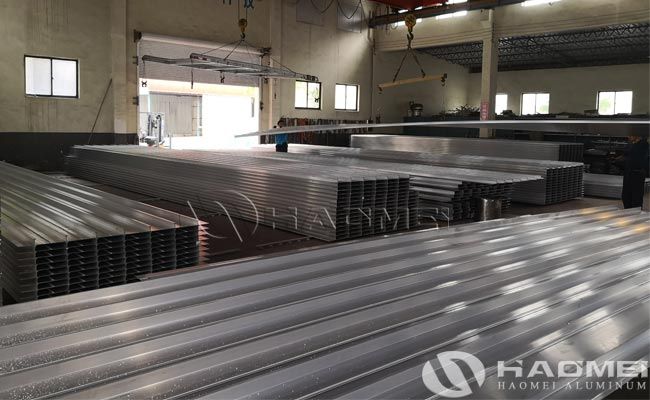Friction Stir Welding of Aluminum Alloy
Friction Stir Welding (FSW) is a solid-state welding technique in which the heat generated by friction between the rotating stirring head and the workpiece brings the material to a plastic state, and then the inter-atomic metallurgical bonding is realized by mechanical stirring. Its core features include the elimination of the need to melt metal, which avoids porosity, cracks and other defects associated with conventional fusion welding, and is particularly suitable for aluminum alloys that are prone to oxidation. The low heat input reduces welding distortion and heat affected zone (HAZ), preserving the original properties of the material.

Process Advantages of friction stir welding aluminum alloy:
- High weld quality: the joint strength can reach 80%-95% of the base material, much higher than the traditional fusion welding (60%-80%).
- Environmental protection and energy saving: no need for welding wire and shielding gas, energy consumption reduced by more than 50%, no fume pollution.
- Wide material adaptability: can weld 2000 series (such as 2024), 5000 series (such as 5083), 6000 series (such as 6061) and other aluminum alloys, and even heterogeneous material combinations (such as aluminum-magnesium, aluminum-copper).
The application of FSW in the marine industry
1. Welding of hull structure parts
- Deck and bulkhead: Large aluminum alloy deck and bulkhead panels are spliced with high precision through FSW, significantly reducing deformation and residual stress. For example, the wide ship aluminum alloy wall plate FSW equipment developed in China can weld plates with a size of up to 60 m², enhancing shipbuilding efficiency.
- Honeycomb structural panels: Used for cabin wall panels with high flatness and mechanical properties, Japan's Mitsui Shipbuilding Co. has applied this technology to build passenger and cargo ships.
2. Integrated Manufacturing of Wide Aluminum Alloy Profiles
- Pre-forming modularization: small-size extruded profiles are connected into large-size prefabricated parts through FSW, which reduces the on-site welding workload in shipyards. For example, China's “catamaran wave-piercing boat” adopts FSW technology of wide-width aluminum alloy wall panels to realize the combination of light weight and high strength.
- Welding of dissimilar materials: e.g. AA5083 (anticorrosive) and AA6082 (high strength), which simplifies ship design and improves structural compatibility.
3. Special Ship Types and Component Manufacturing
- High-speed ferries and warships: Norwegian aluminum companies have delivered 1,700 pieces of FSW aluminum plates for high-speed ferries, with a total welded length of 110km; the aluminum deck of the U.S. warship “Sea Fighter” also uses FSW technology.
- Bow and Complex Surface Forming: The University of Adelaide, Australia, uses FSW to weld the bow of a 5mm-thick 5083 aluminum alloy, combined with burst forming technology to achieve complex structure fabrication.
4. Production efficiency and cost optimization
- Standardized production line: FSW transforms on-site manual welding into workshop assembly line operation. China's first FSW industrial production line can weld an aluminum plate of 2600mm×1100mm, significantly shortening the shipbuilding cycle.
- Material and energy saving: Compared with riveting and fusion welding, FSW reduces the use of welding wire and subsequent processing steps, lowering manufacturing costs by more than 30%.
The technical advantages of FSW in the marine industry:
- Light weight and performance improvement
Aluminum alloy density is only 1/3 of steel, FSW welded hulls can reduce weight by 20%-30%, increase speed and cargo capacity, and at the same time, corrosion resistance prolongs the ship's life.
- High precision and low distortion
The deformation of welded seam is less than 1mm, which ensures the precision of hull assembly and reduces the subsequent correction process.
- Green Manufacturing
No fume and arc light pollution, in line with international environmental standards, aluminum recycling rate of more than 95%.
Friction stir welding technology has become the core process of aluminum alloy shipbuilding by virtue of its features of no defects, low deformation and high energy efficiency. Its application not only improves ship performance and production efficiency, but also promotes the transformation of the shipbuilding industry to lightweight and modular direction. In the future, with the breakthrough of intelligence and material technology, FSW will further expand its application in large cruise ships, deep-sea equipment and other fields.








